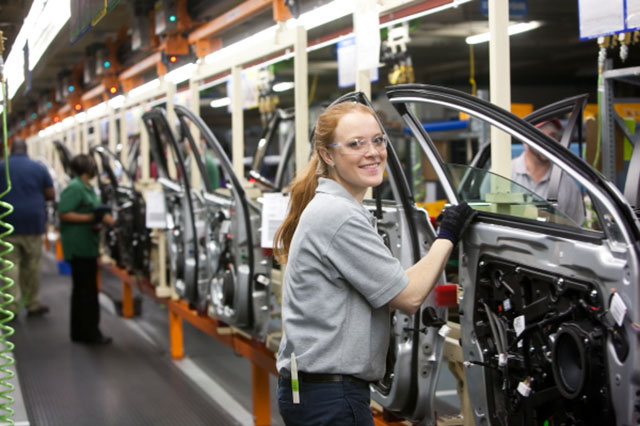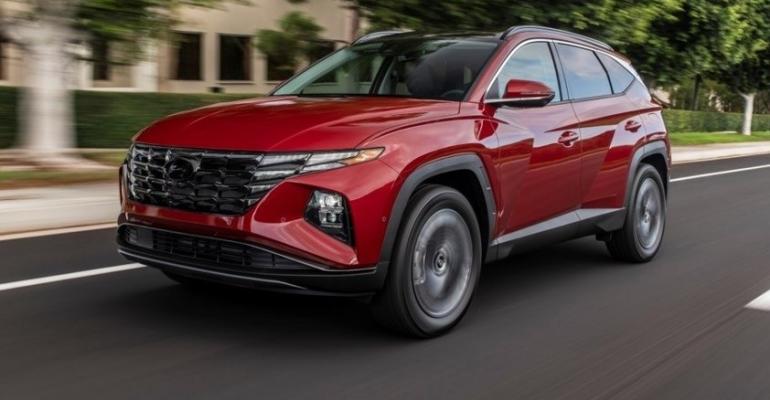Challenged but not stalled by the COVID-19 pandemic, Hyundai is rolling out no fewer than a dozen new or updated utility vehicles through the 2021 calendar year, says José Muñoz, president and CEO of Hyundai North America.
Leading the charge is the all-new ’22 Tucson unveiled Monday in West Hollywood, CA. Gasoline and hybrid versions of the CUV, Hyundai’s best-selling vehicle in the U.S., will arrive at dealerships in spring 2021, followed that summer by a plug-in hybrid.
Besides internal-combustion, hybrid and PHEV propulsion systems, Hyundai is banking on battery-electric and hydrogen fuel-cell vehicles – and is targeting 1 million annual sales of Hyundai, Kia and Genesis BEVs by 2025, Muñoz says during a teleconference sponsored by the Automotive Press Assn. That total will include the Ioniq sub-brand, which will be sold nationwide, he says.
Hyundai’s push for green vehicles has an ally in President-Elect Joe Biden, with whom the automaker expects to cooperate in expanding EV charging and hydrogen fueling infrastructure, Muñoz says.
The redesigned Tucson and the all-new Santa Cruz, a hybrid CUV and pickup truck, go into production in early 2021 at Hyundai’s Montgomery, AL, plant (below), which assembles the Sonata and Elantra sedans and the Santa Fe CUV. The plant will undergo $410 million in renovations, Muñoz says.
At the same time, Muñoz says, “We are all-in when it comes to autonomous vehicles.” Hyundai and its joint-venture partner Aptiv are developing AVs in Korea, and the automaker also is working with Uber to develop electric-powered drones that can fly five to six passengers to major U.S. airports, possibly by 2028 or sooner, he says.

Combined Hyundai and Genesis sales were down 11.6% and Kia deliveries were off 5.7% through October, while overall U.S. light-vehicle sales fell 17.0%, according to Wards Intelligence data. Muñoz predicts November and December will be “good months,” even though COVID-19’s resurgence is likely to depress dealership traffic.
Despite Hyundai’s upcoming utility-vehicle blitz, the automaker remains committed to passenger cars, with 4 million copies sold yearly in the U.S., Muñoz says. “This is a very rewarding segment” popular among younger consumers, he says.
Hyundai’s holiday-period advertising and marketing will downplay the pandemic and emphasize the automaker’s “great products,” Muñoz says. “We’re going to be kind of normal.”
The automaker is “cautiously optimistic” about 2021, when it projects 15.2 million light-vehicle sales in the U.S., he says.





